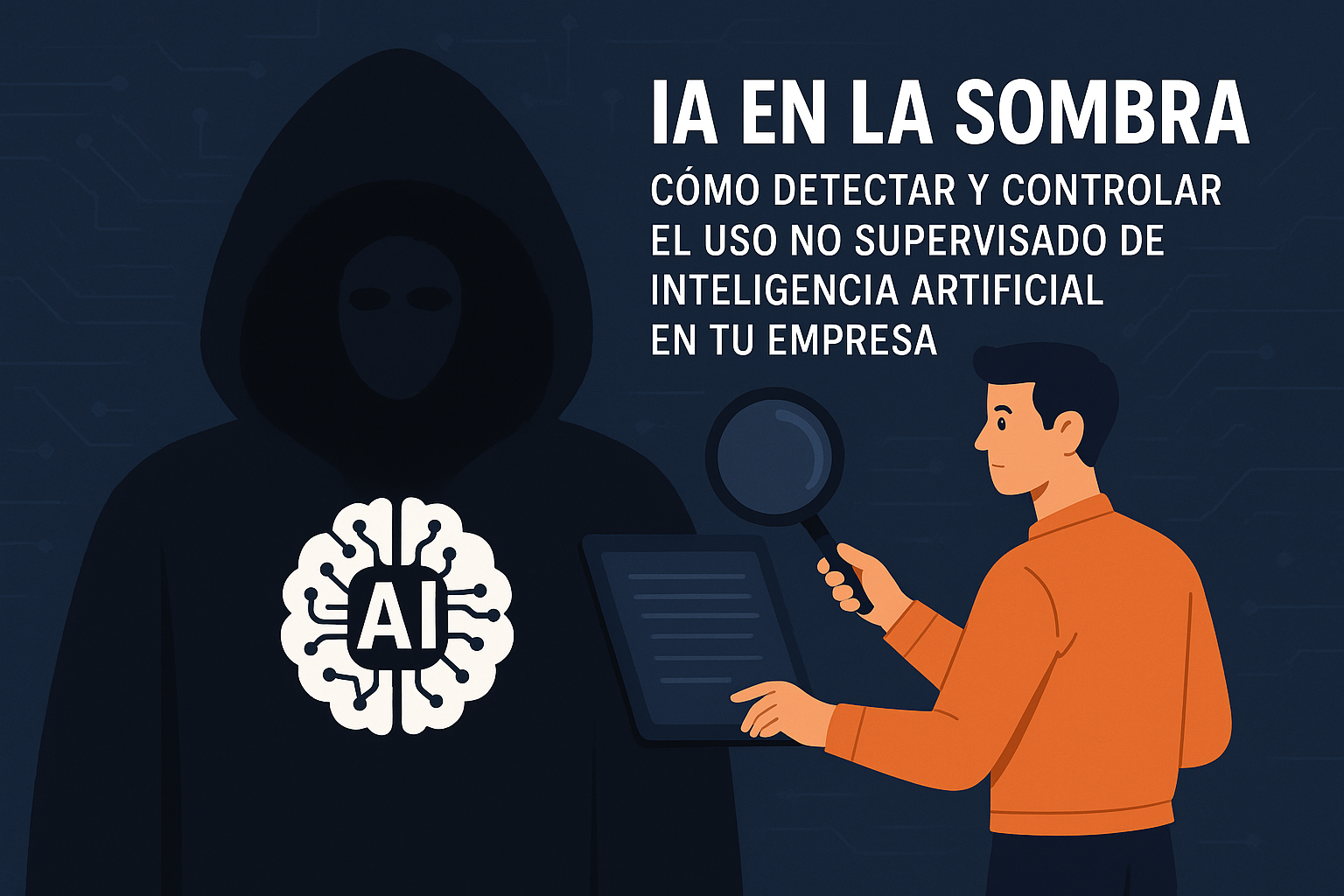Artificial intelligence (AI) has become a ubiquitous tool in the business environment. From drafting emails to generating reports, tools such as ChatGPT, Notion AI or Copy.ai are being adopted by employees in a variety of areas. However, this often unsupervised use poses significant risks in terms of security, compliance and data protection.
A recent article in State of Evil highlights how AI is infiltrating organizations without a clear strategy, which can lead to vulnerabilities and ethical challenges.
Diagnosis: Identifying Unsupervised AI Use
1. Rapid Internal Audit
Conduct confidential employee surveys to identify which AI tools they are using and in which specific tasks. This information is crucial to understanding the extent of AI use in the organization.
Process Mapping
Analyze areas where AI is being used unsupervised, such as in mail writing, proposal generation or reporting. This mapping helps to visualize critical points and establish appropriate controls.
3. Risk Assessment
Determine whether AI tools handle sensitive or strategic data and whether they comply with data protection regulations, such as the General Data Protection Regulation (GDPR). Failure to comply can result in significant penalties and reputational damage.
Action Plan: Integrating AI Safely and Strategically
1. Define an AI Usage Policy
Establishes clear guidelines on what AI tools can be used, in what contexts and with what restrictions. Includes clauses on data protection, confidentiality and intellectual property.
2. Training and Awareness
Organizes workshops and training sessions for employees to understand the benefits and risks of AI. Promotes a culture of responsible and ethical use of these tools.
3. Implement Approved Tools
Select and provide access to AI tools that meet enterprise security and privacy standards. Ensure that these tools are integrated into existing workflows.
4. Continuous Monitoring and Review
Establishes mechanisms to monitor the use of AI tools and detect possible deviations or misuse. Periodically reviews and updates policies and tools based on technological developments and business needs.
Additional Recommendations
- Start Small: Implement pilot projects in specific areas to assess impact and adjust strategies before wider adoption.
- Encourages Collaboration: Involve different departments in the selection and evaluation of AI tools to ensure consistent and effective adoption.
- Establish Success Metrics: Define clear indicators to measure the impact of AI on productivity, efficiency and quality of work.
At Montevive.ai, we understand the challenges of integrating AI into organizations. We offer customized solutions to help you implement secure and effective AI strategies, aligned with current regulations and industry best practices.
For more information and advice, please visit our website or contact us directly.

